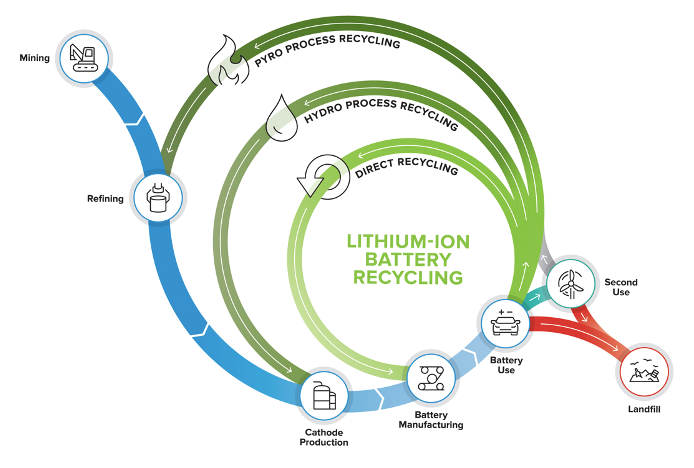Recapturing materials for reuse in batteries or other applications through chemical conversion.
Recycling processes that are not related to direct recycling are captured in this focus area. This includes technologies used as part of hydrometallurgical and pyrometallurgical recycling approaches. These methods are currently used by industry to recycled lithium-ion batteries and involve breaking down the materials inside of a battery by heating them to high temperature or dissolving in acid. After this, a mixture of valuable metals are recovered in either a solid or solution form. Being able to separate and purify the metals (e.g., lithium, cobalt, nickel, etc.) to a point where they can be accepted by the battery industry is critical. High efficiency will be necessary to create a profitable recycling structure while recovery of high purity materials is important for industry to accept recycled products. In addition, lithium, cobalt, and nickel are high-value materials that are defined as critical due to their limited supply or their geographical location. By recovering these materials, we will be securing a domestic source for them, therefore reducing our foreign dependence and increasing our national security.
Research in this focus area centers around two main themes:
- Separation and Recovery of Critical Materials: Study methods to improve the extraction of critical materials from feed materials. Investigate materials (e.g., sorbents and membranes) and techniques for selectively separating metals present in solutions during recycling.
- Synthesis of Cathodes Using Recycled Materials: Use recycled solutions or salts to produce cathode material. These materials will be compared to cathode synthesized using virgin materials and commercial materials to understand the impacts of using recycled feedstocks.
Learn more about the individual projects in these areas in our Quarterly Reports and Publications.


